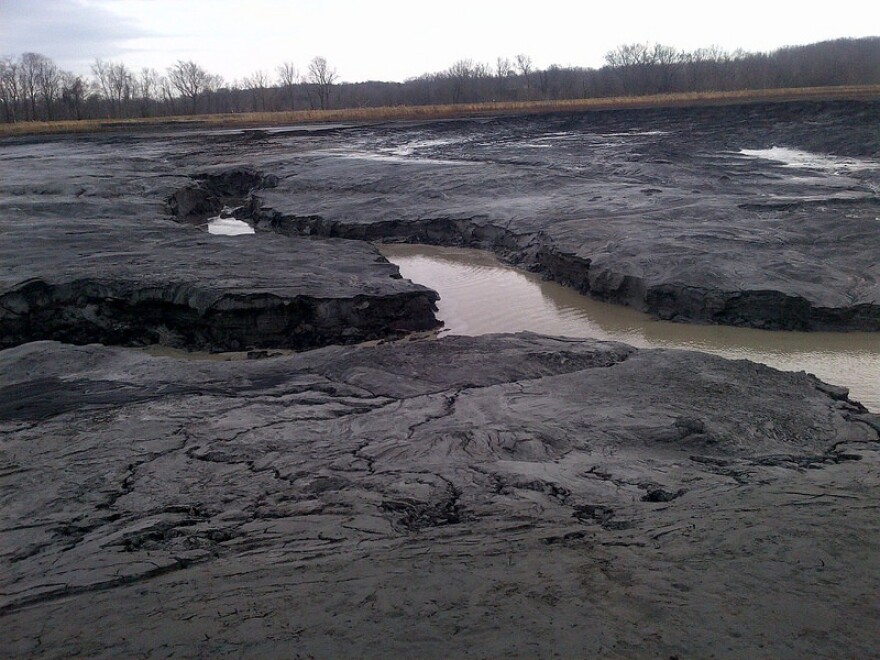The state has cited Duke for 11 leaks at the Riverbend, Allen, Marshall, Cliffside, and Buck plants. Bridget Munger, spokeswoman for the state Division of Dam Safety, says they range in size and significance.
“We are finding an assortment in different places and of different amounts,” says Munger. “In some cases it’s a little bit of seepage, in some cases it might be that a pipe is showing signs of deterioration but there’s no leakage yet, and in other places we’re finding more substantial leaks.”
In all cases, regulators found them in systems of pipes designed to filter overflow water from the pond into nearby rivers or lakes. One at the Cliffside plant in Cleveland County is leaking over a thousand gallons a day. The state’s citation describes a makeshift system of sandbags and PVC pipes collecting the spilling water.
Regulators are not concerned about contamination, since the leaking water is intended to exit the pond, anyway. The larger concern is that dams are made out of earth, and the pipes run through them. Leakage could eventually compromise those walls.
Munger says regulators caught the problems in time, after requiring Duke to install video cameras in the pipes, after a broken pipe caused the coal ash spill at Dan River in February.
“We are lucky in that we requested these videos at all plants, and so now we are seeing potential problems before they become a serious issue,” says Munger.
Duke has 30 days to file plans to fix the pipes.
Senate discusses coal ash
The North Carolina Senate is considering how to close coal ash ponds around the state. The Senate proposal adds deadlines to a plan Governor Pat McCrory offered in April, but also dilutes some environmental protections. It would sort the ponds into three categories—high, medium, and low-risk, and require closure within 5, 10, and 15 years respectively. The state Department of Environment and Natural Resources had supported the governor’s plan, but Secretary John Skvarla endorsed the new legislation with a few caveats.
“I think that some of the timelines, especially the short ones, the 30 and 60 day ones might be a little bit tight, but they’re fairly minor relative to the grand scheme of things,” Skvarla told senators.” I’m sure we can work out some of those details.”
Duke Energy expressed concerns about the aggressiveness of the timeline, while environmental groups quickly panned the legislation, pointing out it no longer requires removal of ash away from drinking water supplies—even at four ponds where Duke has proposed it. Instead, Duke could either remove the ash or convert the ponds into landfills.
The Senate committee meets again today and will likely vote on the plan.
Update 12:18 p.m. - The Senate committee has passed the legislation, moving it to the full Senate for consideration.




